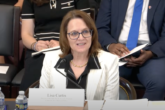October 01, 2019
How to Make Proportionate Bargains with North Korea on Denuclearization and Peace
The United States and North Korea will finally sit down for nuclear talks on October 5, according to an announcement by Pyongyang. Three months had passed without negotiations despite a handshake in June between U.S. President Donald Trump and North Korean leader Kim Jong Un, at the Demilitarized Zone (DMZ) separating the two Koreas, to resume working-level talks. North Korean First Vice Foreign Minister Choe Son Hui finally proposed on September 9 that the two sides meet at the end of the month, but, until now, Pyongyang had been “negotiating” through the media rather than discussing possible dates directly with its American counterparts for a meeting. It had praised Trump for suggesting he would try a “new method” with Pyongyang, as it had been demanding a “new calculation” from Washington for negotiations since the no-deal Hanoi summit in February. However, Trump’s remarks were made in the context of differentiating between the so-called Libya model, which North Korea sees as a formula for its demise: giving up nuclear weapons leads to the death of their leader.
More concerning is North Korean commentary framing the upcoming talks publicly as “preparations for a summit statement agreement.” This throws into question whether negotiators will be able to engage in any credible negotiations on the nuclear issue yet again. North Korean envoys were not given any room to discuss this core topic ahead of the past two summits, claiming it was for Kim to decide. This resulted in a vague leaders’ statement in Singapore and no agreement in Hanoi. Upping the ante, Pyongyang publicly warned on September 16 that it would discuss denuclearization only after “threats and obstacles” to their country are removed.
Negotiating with a country like North Korea involves many twists, turns, and delays. It also operates on an exponentially longer time scale while Trump has just over one year to achieve meaningful results before the next presidential elections, and South Korean President Moon Jae-in has about three years to establish peace on the Korean Peninsula. Trump may very well be the only American president who is willing to deal directly with Kim and provide massive benefits in unconventional ways, but Pyongyang so far continues to follow its old negotiating playbook instead of boldly rolling the dice to test Washington directly through meaningful negotiations.
Read the full article in The National Interest.
Read more from Duyeon Kim's June 2019 report about the possible path to North Korean denuclearization:

Negotiating Toward a Denuclearization-Peace Roadmap on the Korean Peninsula
In a June 2019 report, Duyeon Kim writes that “the road ahead remains as uncertain as ever” for negotiators from the United States and North Korea....
Read MoreMore from CNAS
-
Assessing the Terror Threat Landscape in South and Central Asia and Examining Opportunities for Cooperation
Watch...
By Lisa Curtis
-
Indo-Pacific Security / Energy, Economics & Security
What Will North Korean Cybercrime Look Like in 2022?North Korean hackers will likely continue to employ more phishing campaigns in the future while tailoring their level of obfuscation based on the target’s sophistication....
By Jason Bartlett
-
Duyeon Kim testifies before European Parliament's Committee on Foreign Affairs
Chairman McAllister, Vice Chairs, DKOR Chairman Mandl, and distinguished Members of the Committee on Foreign Affairs and the European Parliament, thank you for the opportunity...
By Dr. Duyeon Kim
-
China’s New Land Borders Law Is a Nightmare for North Korean Refugees
A combination of high-level pressure from foreign governments and steady support for grassroots refugee resettlement organizations and programs is the most practical way to as...
By Jason Bartlett


